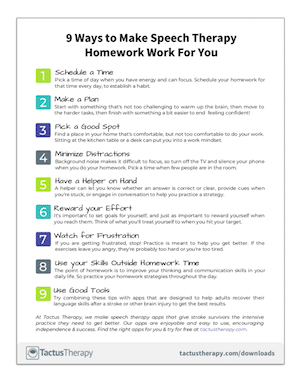Welcome to speech therapy at home. Speech therapy helps children speak clearly. You can do speech therapy at home. It is simple and fun. You just need to follow some steps. This guide will help you.

Credit: gentlecaretherapy.com
Why Speech Therapy is Important
Speech therapy helps children communicate better. It improves their speech skills. Children learn to say words correctly. They also learn to understand language. This helps them in school and life.
Getting Started: Know Your Child’s Needs
Every child is unique. Some kids need help with sounds. Others struggle with understanding words. Watch your child. See where they need help. You can ask a speech therapist for advice. They will guide you.
Setting Up a Speech-Friendly Environment
Choose a quiet place for speech practice. Remove distractions like TV or loud toys. Make the space comfortable. Use a table and chair. Keep materials nearby. This helps your child focus.
Create a Simple Routine
Routines are helpful. They make practice easy. Start with short sessions. Ten minutes is good. Increase time as your child improves. Keep the schedule regular. Daily practice is best.
- Choose a time when your child is alert.
- Make sessions fun and engaging.
- Use rewards like stickers or praises.
Use Everyday Activities
Speech therapy can be part of daily life. Talk to your child during meals. Describe what you see on walks. Sing songs together. These activities build language skills.
Cooking Together
Cooking is a great activity. Name ingredients as you cook. Talk about each step. Ask questions like “What comes next?” This builds vocabulary.
Reading Books
Reading helps speech skills. Choose simple books. Point to pictures. Name objects. Ask your child to repeat words. Encourage them to describe the story.
Playing Games
Games make learning fun. Play word games. Use picture cards. Match sounds with images. This helps your child learn sounds.
Using Technology Wisely
Technology can help speech therapy. Use apps designed for speech practice. These apps are interactive. They keep your child engaged. Limit screen time. Balance it with offline activities.
Track Progress and Celebrate Success
Keep a record of your child’s progress. Note improvements in speech. Celebrate small achievements. This motivates your child. It shows them that hard work pays off.
| Activity | Skill Focus |
|---|---|
| Cooking | Vocabulary |
| Reading | Comprehension |
| Games | Sound Recognition |
Working with a Speech Therapist
Speech therapists are experts. They provide guidance. Consult them for advice. They help set goals. They also offer feedback on progress.
Common Challenges and Solutions
Some children resist practice. Make sessions short and fun. Use rewards to encourage participation. Stay positive. Be patient. Every child learns at their own pace.
Tips for Successful Speech Therapy at Home
- Keep sessions consistent.
- Stay patient and positive.
- Use simple and clear language.
- Include fun activities.
- Work with professionals when needed.

Credit: tactustherapy.com
Frequently Asked Questions
How To Start Speech Therapy Routines At Home?
Begin with simple exercises. Focus on sounds and words. Consistency is key. Practice daily for best results.
What Materials Are Needed For Speech Therapy?
Use flashcards, books, and apps. Visual aids help. Keep materials accessible. Make sessions interactive and fun.
How Long Should A Speech Therapy Session Be?
Sessions should last 15-30 minutes. Short but focused. Regular sessions are better than long ones. Keep kids engaged.
Can Parents Effectively Conduct Speech Therapy?
Yes, parents can help. Follow guidance from a therapist. Stay patient. Encourage practice and progress.
Conclusion
Creating speech therapy routines at home is doable. It requires planning and patience. Use daily activities to enhance learning. Celebrate progress to motivate your child. With consistent practice, your child will improve. Remember, every small step counts.
Thank you for reading. We hope you found this helpful. Start today and watch your child grow. Speech therapy at home is a journey. Enjoy every moment of it.
